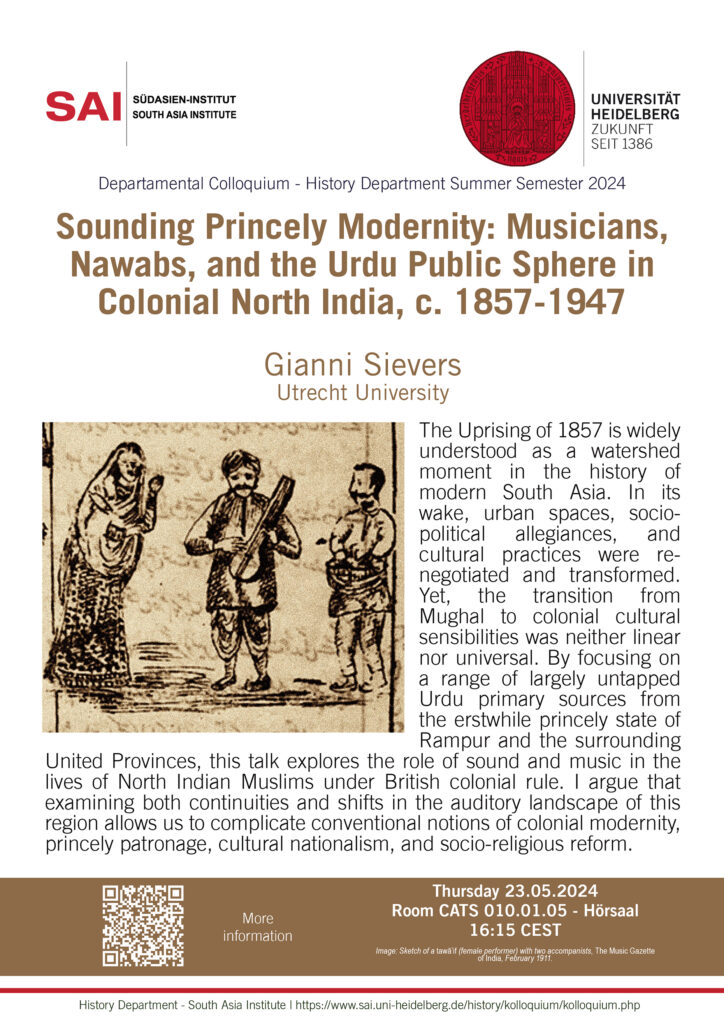Colloquium talk by Gianni Sievers (May 23, 2024)
Department of History, South Asia Institute, Heidelberg University (Germany)
Abstract
The Uprising of 1857 is widely understood as a watershed moment in the history of modern South Asia. In its wake, urban spaces, socio-political allegiances, and cultural practices were re-negotiated and transformed. Yet, the transition from Mughal to colonial cultural sensibilities was neither linear nor universal. By focusing on a range of largely untapped Urdu primary sources from the erstwhile princely state of Rampur and the surrounding United Provinces, this talk explores the role of sound and music in the lives of North Indian Muslims under British colonial rule. I argue that examining both continuities and shifts in the auditory landscape of this region allows us to complicate conventional notions of colonial modernity, princely patronage, cultural nationalism, and socio-religious reform.



